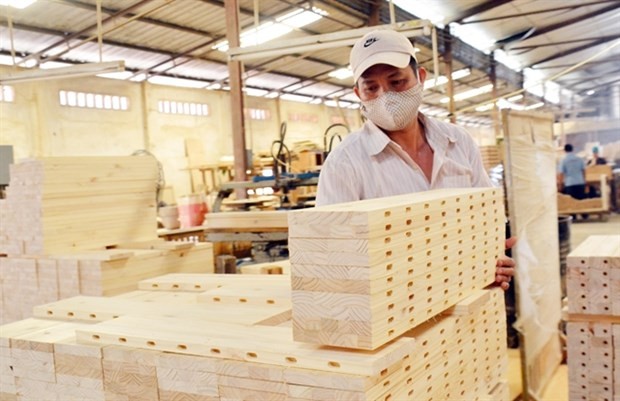
MoIT to strengthen efficiency in dealing with trade remedies in H2
Latest
 |
| Wooden products of Vietnam, including those for export, are at risk of facing trade remedy investigations in foreign countries and territories. (Photo: tapchicongthuong.vn) |
Specifically, MoIT’s Trade Remedies Authority will continue to monitor and support domestic enterprises and manufacturing industries in completing dossiers for trade remedy investigations for Vietnamese products in foreign markets.
It especially focuses on anti-evasion tax cases for products having high export turnovers such as wood, solar cells and steel, as those cases have a large impact on domestic production and export, and high anti-evasion tax rates.
Besides that, the authority will complete a review of existing trade remedies in the domestic market, including the final review of anti-dumping measures for imported cold-rolled stainless steel products, colour-coated steel and aluminium profiles.
Deputy Minister of Industry and Trade Nguyen Sinh Nhat Tan has requested the Trade Remedies Authority step up the assessment of impacts and damages from the trade remedy cases for each commodity.
The authority also needs to closely coordinate with relevant units in the ministry, as well as other ministries and branches such as the finance ministry and the agriculture and rural development ministry in the process of dealing with the trade remedy cases.
Meanwhile, Trinh Anh Tuan, Director of the Trade Remedies Authority, said that countries tended to apply trade remedies for imported goods, so Vietnamese exports would be at high risk of facing trade remedies abroad.
Global economic growth from now until the end of the year would slow down significantly due to the effects of the tightening monetary policy as well as limited credit conditions. That had increased protectionism in many countries.
According to Tuan, Vietnam's participation in free trade agreements has gradually reduced tariff barriers, so many Vietnamese exports are on a strong growth path, which means the export products face many trade defence lawsuits.
Participation in regional supply chains also means the country is often sued together with a number of other countries such as China and India. Those countries have large export turnover and are often subjects of trade lawsuits.
Tuan noted that the trade remedy investigation cases against Vietnamese products had been mainly anti-dumping and tax evasion in markets that regularly conduct trade remedy investigations such as the US, India, and Australia.
Steel and yarn frequently faced trade remedy investigations. Recently, cases of investigation against tax evasion for Vietnamese products had increased, especially in the US, he said.
According to MoIT, up to now, there have been 231 trade remedy cases initiated by foreign countries and territories against Vietnamese exports, including 128 anti-dumping cases, 47 safeguard cases, 33 cases of anti-circumvention of trade remedies and 23 anti-subsidy cases.
In the first six months of 2023, there were four trade remedy cases against Vietnamese exports, slightly down from five cases in the same period of 2022.
The ministry has reported that Vietnam's exports are at high risk of facing trade remedy investigations in foreign countries and territories, including steel, aluminium, copper, rubber, plastic, chemical, building material and wooden products.
These products have experienced rapid growth in recent years because Vietnamese enterprises have competitive advantages in export markets. These factors make Vietnamese products easy to become subjects of trade remedy investigations.

























